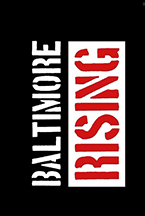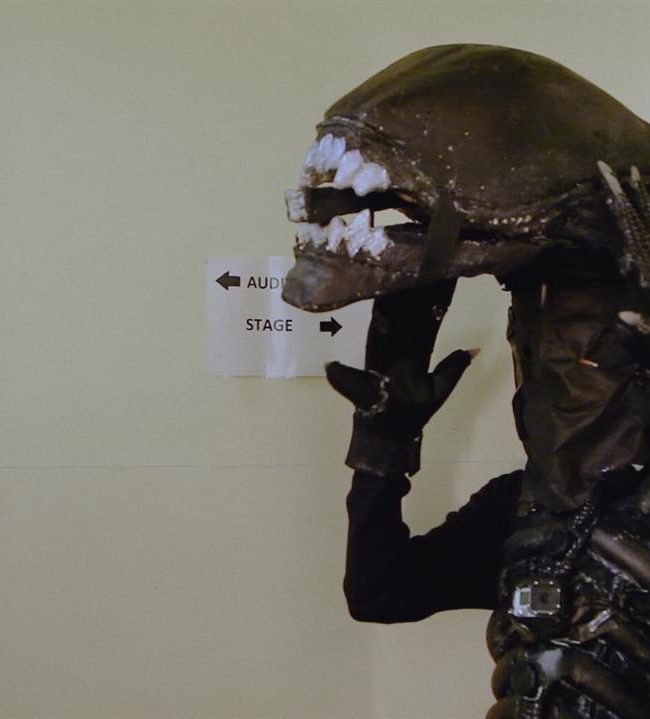BALTIMORE RISING

(DOC NYC started November 9 and runs through November 16. HtN has you covered with reviews so keep checking back!)
Poor Baltimore! Whether in TV series like NBC’s Homicide: Life on the Streets (1993-1999) or HBO’s The Wire (2002-2008), the city just can’t seem to catch a cinematic break when it comes to how the rest of the world sees it. Then again, those were both excellent programs, well-written and well-acted, and certainly New York has had its share of police dramas without everyone thinking it’s just a hellhole. Also, those programs were hardly representative of all aspects of life in Charm City (as the city is affectionately – or ironically, depending on your perspective – known). Most urban spaces in America have their problems, and no one watching Homicide or The Wire should assume that the topics raised are unique to Baltimore, alone. Still, there is no question that the city has a very high murder rate. Unfortunately, all too often, we talk only about the fact, itself, and not its causes. Baltimore Rising seeks to do just that.
Director Theo Anthony’s recent experimental documentary Rat Film examines the city’s legacy of racist zoning policies that have kept poor, mostly African-American residents in underserved neighborhoods. Now, actress Sonja Sohn (Detective Kima Greggs on The Wire), making her directorial debut, similarly points her lens at the failing Baltimore infrastructure that led to riots following the death of Freddie Gray in police custody. As former City Councilman Carl Stokes says at the start of the film, walking us through boarded-up streets and correcting the impression that the riots led to the destruction we see, it was the conditions of the community that caused the riots, and not the other way around. In other words, the physical devastation of many Baltimore neighborhoods pre-dates the uprising. No wonder so many people are angry.
Sohn proves an extremely able documentarian, inserting herself among participants on all sides of the debate, from the police to activists and beyond. Some of this access may be due to her celebrity status, but Sohn has long been involved in community issues in the city, founding ReWired for Change – a non-profit with a goal to empower “at risk youth, families and communities living in underserved areas through media, social advocacy and the facilitation of community building resources” – following her time on The Wire, and has earned her own place at the table. Even knowing this, however, I am still impressed at how seamlessly she moves between the opposing camps, helping us understand how there can be common ground between the police and those they serve (and oppress). When we see Commissioner Kevin Davis sit down with former gang member (and now drug counselor) Genard “Shadow” Barr to discuss the best path forward, disagree as they do so, and then hug it out at the end, it gives one hope that maybe one day Baltimore (and, by extension, other cities) can resolve the tensions that threaten to destroy it. Maybe, maybe not, but at least they’re talking.
– Christopher Llewellyn Reed (@ChrisReedFilm)











